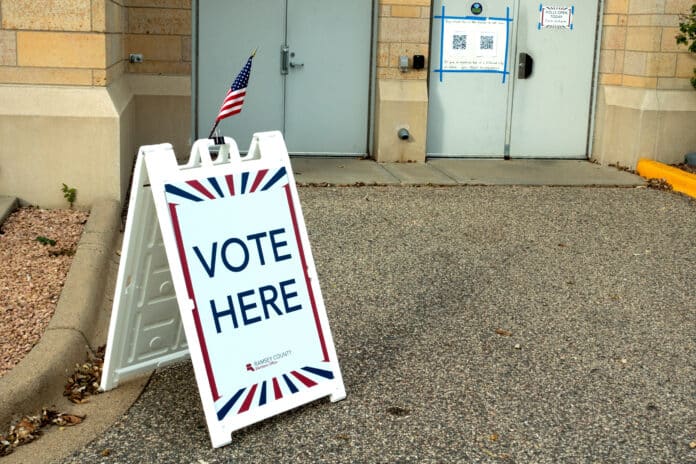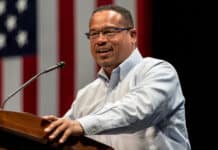
(The Center Square) — A lawsuit challenges a new law allowing civil and criminal penalties for certain speech within 60 days of an election.
The Liberty Justice Center and the Upper Midwest Law Center (UMLC), both public interest law firms, filed the lawsuit in the U.S. District Court of Minnesota this week.
The lawsuit targeting Attorney General Keith Ellison and Anoka County Attorney Brad Johnson says a new state law active June 15 criminalizes political speech by imposing “criminal and civil penalties on individuals who knowingly make materially false statements within 60 days of an election with the intent to impede or prevent another person from exercising their right to vote,” UMLC explained in a press release.
The plaintiffs argue House File 3 violates Minnesotans’ free speech rights by outlawing speech about undecided legal questions, such as whether the state’s constitution allows felons the right to vote before their sentences have ended, rather than afterward. The plaintiffs in the case have also filed a lawsuit challenging the constitutionality of a new law that allows felons to vote once they have been released from jail but before they have completed probation or parole.
“Plaintiffs intend to continue to speak — both through their First Amendment right to petition the courts with their state-court lawsuit, and also in the public square — as to their view of the Minnesota Constitution: felons who have not served their full sentences, or otherwise had their sentences discharged, cannot legally vote,” the complaint says.
The complaint says plaintiffs could be subject to a gross misdemeanor criminal charge, a $1,000 fine for each violation, as well as attorney fees by saying within 60 days of an election that “felons still serving their sentence do not have a right to vote in Minnesota.”
Minnesota Voters Alliance, a nonpartisan organization that aims to increase voter participation in elections, is the lead plaintiff. Alongside citizens, the group is challenging HF 3, arguing the state’s criminalization of political discussion about elections violates the First Amendment.
“We at Minnesota Voters Alliance continually provide Minnesotans important information about elections and election policy,” MVA Director Andy Cilek said in a statement. “This new speech code, which basically says ‘Don’t Say Felon’ within 60 days of an election, is clearly aimed at shutting down our speech on election integrity issues. It cannot stand, and so we are bringing this lawsuit to uphold the First Amendment free-speech rights of the MVA and all Minnesotans.”
Ellison’s office hasn’t responded to a request for comment.
“The First Amendment guarantees all Americans the right to discuss political matters freely,” LJC Counsel Reilly Stephens said in a statement. “This right is especially crucial in discussions of election-related issues because the core of the right to free speech is the right to engage in the political process — including arguments about what rules do and should govern voting in our democracy. Ultimately, the state of Minnesota has an obligation to defend citizens’ First Amendment rights, and we will hold them to that.”













